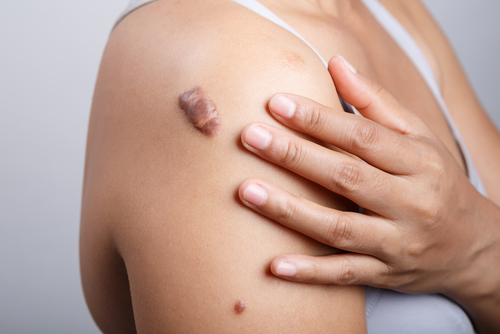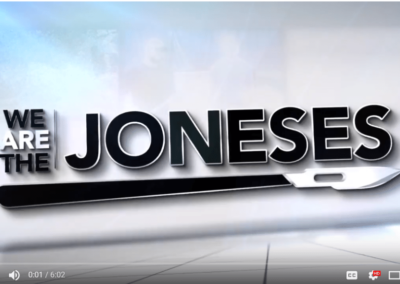While not considered dangerous or life-threatening, keloids can still be very uncomfortable. They can also impact a person’s self-confidence and overall mental health when they’re visible.
You can remove keloids, although it isn’t always as simple as a doctor cutting them cut off with a scalpel. At Lexington Plastic Surgeons, we offer several treatment options that remove keloids and prevent them from reforming.
It’s essential to understand what a keloid is and why removal alone may not always work. Keep reading to learn more about keloids!
What is a Keloid?
A keloid is raised scar tissue. When a wound is healing, scar tissue, composed of a protein called collagen, builds up to close up the injury. Sometimes, too much collagen builds up, and it causes a raised scar.
Medical experts aren’t sure exactly why this happens, but they know that some people are more prone to developing keloids than others. People who develop keloids tend to be between 20 and 30 years old, have darker skin, or have a family history of keloids.
Keloids can be slightly raised and may fade over time. But sometimes, they get much larger than the original wounds.
Keloids don’t cause any medical problems but can cause emotional distress and physical discomfort, so many patients understandably seek treatment.
Keloid Removal
Removing a keloid is a relatively simple procedure. Depending on its size and location, you can remove many keloids using only local anesthesia.
The excess scar tissue is extracted with a scalpel. However, keloids often reform from the injury left after removal. Luckily, there are a few ways to prevent this:
Keloid Care
After having surgery to remove your keloid, you should massage Keloid Care, a topical cream, onto the skin regularly. This cream contains a mix of powerful antioxidants and natural ingredients like aloe and shea butter. Using this cream may prevent a keloid from reforming.
Advanced Superficial Radiotherapy Treatment
When Keloid Care alone cannot prevent a keloid from reforming after surgery, Lexington Plastic Surgeons have another technique that has a 90% success rate in preventing keloid recurrence. Our superficial radiotherapy treatment is the most advanced treatment option for keloid removal.
The treatment uses the Sensus Healthcare Superficial Radiotherapy system, which emits a very low level of radiation to the affected area.
Candela Vbeam Pulsed Dye Laser Treatment
Candela Vbeam pulsed dye laser treatment is an alternative to keloid removal surgery altogether. It uses a laser that delivers a burst of light onto select areas of skin and can flatten and fade keloids over time.
The laser also uses a cooling method that minimizes discomfort during this non-invasive procedure. You’ll usually receive pulsed dye laser treatment over several sessions, with 4-8 weeks between sessions, until the keloid flattens and shows no further signs of regrowing.
If you have keloids that are bothering you and keep coming back, don’t continue to live in discomfort. The professionals at Lexington Plastic Surgeons can help with one of these treatments or a combination tailored to you and your specific needs.
Schedule your appointment at Lexington Plastic Surgeons to get the treatment you need to get back to living life without keloids standing in your way.



